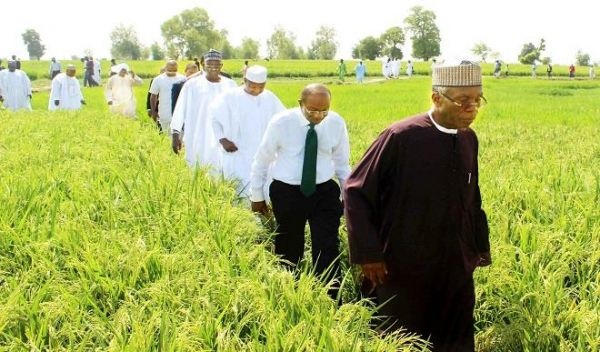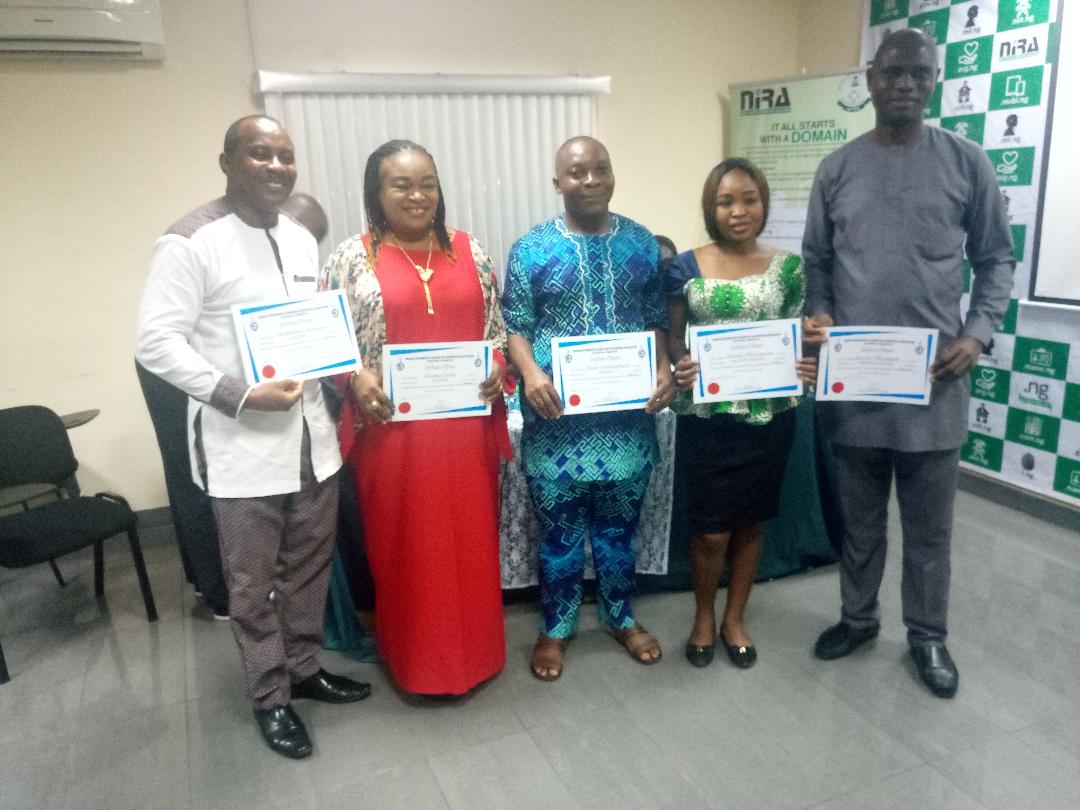A number of rice smugglers and resellers stationed at Alabarago market, opposite LASU gate along Lagos-Badagry Expressway have advised the Minister of Agriculture and Rural Development, Chief Audu Ogbeh to first drive the saturation of markets with Nigerian rice at a very competitive price, then, the land borders and even creeks will shut themselves seamlessly.
In an undercover interaction with the dealers and smugglers’ within the market, they believed that the threat to shut borders did not start today, noting that the same government that is announcing plans to shut borders are the same people that encourage smugglers to either use land borders or creeks to bring in foreign rice from Cotonou on a daily basis.
One of the top dealers in smuggled rice at the market popularly known as ‘Mama Alhaja’ told Business Hilights Intelligence Unit (BHIU) on Tuesday that “What we doing are to compliment the efforts of local producers to saturate the market with rice”.
“Many of us are ready to switch to dealing on local rice, but where is the rice? Local rice is very scarce and even here in Lagos, the process of seeing or buying the Lake Rice is cumbersome as they are not in the open markets but at local governments or special centres and people are not ready to waste the entire day to buy a bag of rice on presentation of Resident LASRRA ID card or tax clearance as I was told.

“We all are aware that local rice is better processed and good for our health and economy but kindly show me a shop around where you live for me to go and buy at affordable price.
Continuing, Mama Alhaja stressed that “So far it is the same Police and Customs that will stay at the land borders and on this Badagry-Seme Expressway to implement the ban, it means that smuggling will continue because we know them, they know us; unless Abuja people and the minister himself will come and mount surveillance along all the routes our boys use”.
Besides, a civil servant met buying rice at the Iyanaoba smuggled rice depot told our correspondent that “I prefer local rice, but they are not easy to see in the market. The last one I ate in Lagos was sent to me from village and the process of sending it to us here in Lagos is not easy”.
Continuing, he called on the government to “Assist local rice farmers in securing warehouses in populous states like Lagos so that farmers can saturate Lagos with local product and in the process, smuggling will die a natural death. Smuggling is booming because there has not been available and affordable indigenous substitute”.
It would be recalled that Chief Ogbeh had given the signal of shutting land borders soon while speaking with youths in a leadership clinic under the auspices of Guardians of the Nation International (GOTNI) in Abuja.
Though he failed to give clear details on how the new idea will lead to the availability and affordability of Nigerian rice in the market, the minister said a neighbouring country was bent on destroying the economy of the country and discouraging local production of rice, hence the need to shut down the border.
According to him, “Our other problem is smuggling. As we speak, a neighbour of ours is importing more rice than China is importing. They do not eat parboiled rice, they eat white rice, they use their ports to try and damage our economy.
“I am telling you now because in a few days, you will hear the border has been shut, we are going to shut it to protect you, us and protect our economy. You will start seeing all sorts of negative things on the internet.
“Let me tell you why we need to shut the border. I grow rice, I was the first Nigerian to mill rice free of stones. If you plant rice in certain parcels of land, some poisonous materials gets into the rice. There are three kinds of water in their natural state; there is fresh water from the river, salt water from the sea, blackish water.
“If you go to the Delta in many countries, in South East Asia where they grow the rice, if you plant rice in the same place like four to six years continuously, the quantum of arsenic begins to increase and arsenic causes cancer and that is what they are dumping for us.
“Some people say they prefer Thai rice because they are very sophisticated, welcome to poison,” Ogbeh said.
Earlier in his remarks before the minister, President of GOTNI and motivational speaker on business enterprises, Dr Linus Okorie, commended the minister for sharing prosperity experiences with the youth and averred that the leadership clinic organised by GOTNI is to expose young people to practical leadership principle for life success.
Already, the President of consortium of local rice farmers under the aegis of Rice Farmers Association of Nigeria (RIFAN), Aminu Goronyo hailed Federal Government’s move to stamp out smuggling.
However, though the minister claimed that the Federal Government in two years reduced rice importation by 95 per cent and increased the number of rice farmers from five million to 30 million, however, analysts say that 95 per cent reduction was just at the seaports because nobody imports via the seaports because of charges.
They argued that the 95 per cent reduction simply resurfaced by way of smuggling if the truth must be said and that is why local farmers fear to send their products to the market.
Currently, states like Anambra, Ebonyi, Kebbi, Kano and Jigawa were doing well in rice production as more states including Cross Rivers, Akwa Ibom, Imo, Benue, Niger and Kwara are beginning to invest in rice farming.









